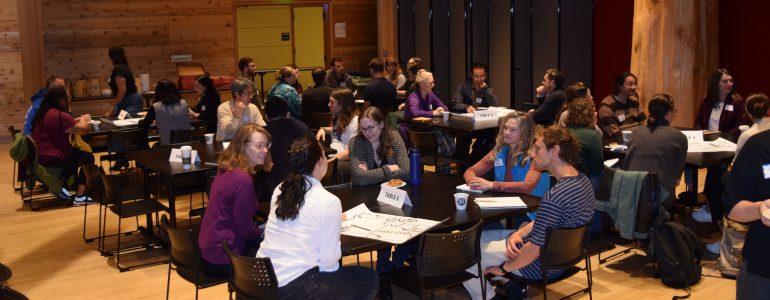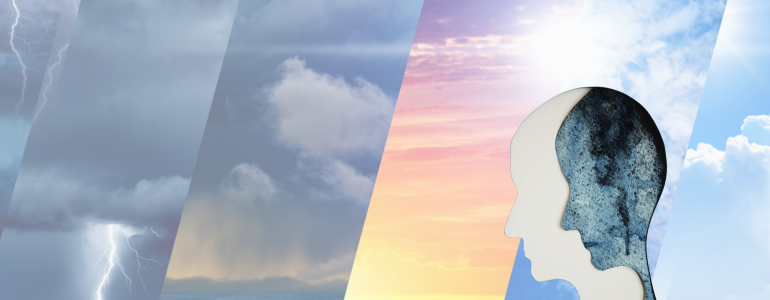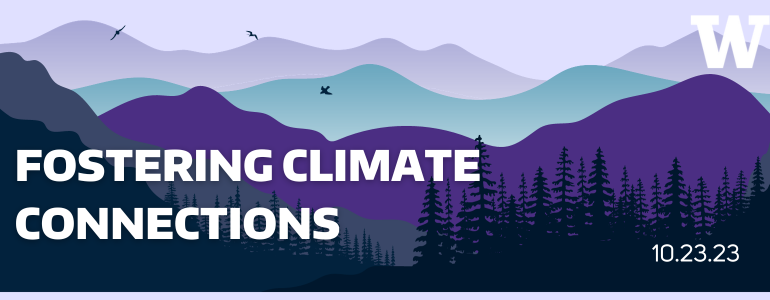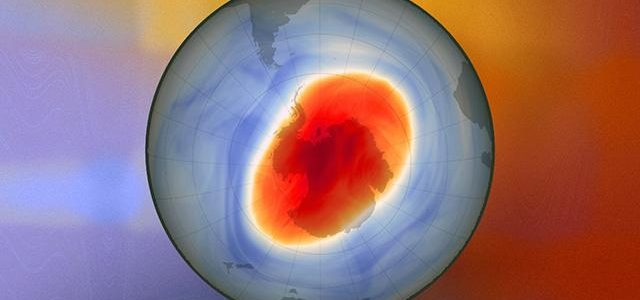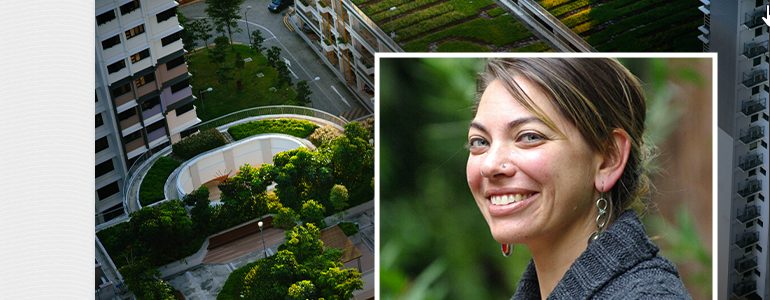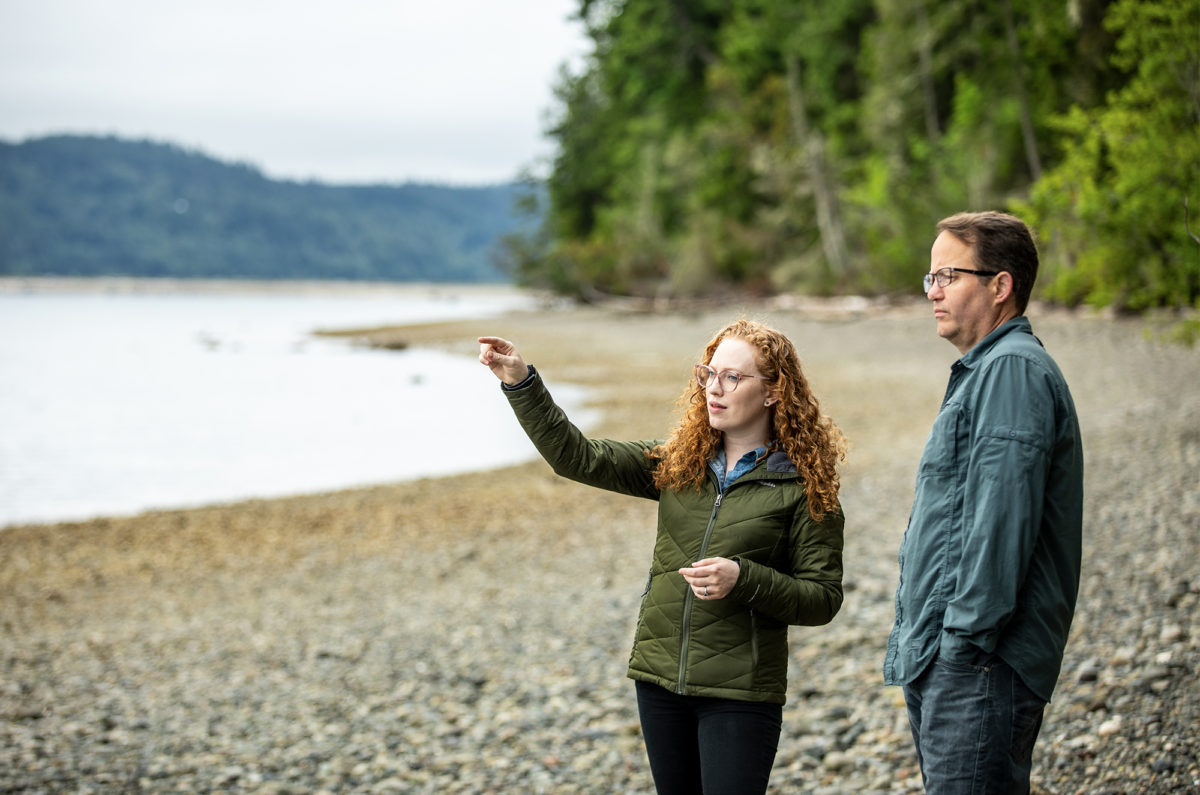EarthLab News
Northwest Climate Resilience Collaborative Releases Second Annual Report
The Northwest Climate Resilience Collaborative is pleased to share the results of our last year of work advancing the climate resilience priorities of frontline communities!
Read moreNew funding for the Northwest Climate Resilience Collaborative supports work in flooding, wildfire smoke
The Northwest Climate Resilience Collaborative is starting two exciting new projects this year that will support adaptation to flooding and wildfire smoke, thanks to funding from NOAA and the Department of Commerce. These projects are: "Stories as science: Integrating lived experience and community knowledge into actionable adaptation science in Pacific Northwest and Pacific Islands regions" and "Understanding the role of social infrastructure in extreme heat and wildfire smoke vulnerability mitigation: A regional comparison in the West and Pacific Northwest regions."
Read morePopulation Health Initiative, EarthLab event builds cross-disciplinary climate change connections
The Population Health Initiative and EarthLab hosted approximately 45 University of Washington faculty, staff and graduate students in an Open Space-style event in the UW wǝɫǝbʔaltxʷ – Intellectual House on October 23, 2023, to help facilitate the development of new interdisciplinary collaborations to take on pressing climate-related challenges. This was the second Fostering Climate Change Connections event, following the inaugural offering that took place on April 11, 2023.
Read moreNCRC and partners to pilot groundbreaking co-production method
Building resilience to climate change requires many diverse areas of expertise, experiences and knowledge. Though they have historically been marginalized from climate preparedness efforts, people of color, Indigenous peoples, people with lower incomes and people whose lives depend on natural resources — known collectively as “frontline communities” — have innovative solutions for building resilience to climate change impacts.
The Northwest Climate Resilience Collaborative and partners are piloting a groundbreaking method for elevating first-hand experiences and visions of climate resilience and solutions, with the goal of incorporating community knowledge into efforts to prepare for climate impacts. Partnering with the documentary storytelling organization Tikkun Olam Productions and the Pacific Research on Island Solutions for Adaptation program, a trans-disciplinary research team will record the oral histories of frontline communities facing flooding and other climate change impacts.
Read moreTaking hopeful action for win-win climate change and mental health policies
EarthLab was honored to be invited by the OECD Wise Centre and the UW Environment and Well-Being Lab to co host a public workshop dedicated to better understanding the connection between climate change and mental health and the policies we can develop to improve lives. On September 19, 2023, fifteen panelists shared new research and personal experiences to help uncover the complex pathways linking climate change and mental health, hopeful actions led by community, tribal knowledge, and barriers and successes in local, state and national policy.
Read moreArt Meets Science: Centre Student Creates Illustrated Guide Book for Yellow Island Visitors
Read more
Make new interdisciplinary climate research connections on Oct. 23 (UW RSVP req'd)
The Population Health Initiative and EarthLab will again co-host an Open Space-style event in the wǝɫǝbʔaltxʷ – Intellectual House on 10/23/23 to facilitate the development of new interdisciplinary collaborations to take on pressing climate-related challenges. UW faculty members, staff and graduate students who attend the event will set the agenda for discussion. RSVP required.
Read moreU.S. research funding on health effects of climate change inadequate
“We’ve systematically underinvested in this rapidly emerging health threat, and it has hamstrung our ability to respond,” said Dr. Jeremey Hess, professor of environmental and occupational health sciences at the University of Washington School of Public Health and of global health and emergency medicine at the UW School of Medicine in Seattle, one of the authors of the paper. Dr. Jeremy Hess is also the director of the Center for Health and the Global Environment, an EarthLab member organization.
Read moreJoin us for the 2023 Doug Walker Lecture, Building Resilience: Future-forward solutions for nature, health and the urban environment
We're thrilled to share that Dr. Heather Tallis will be the keynote speaker at the annual UW College of the Environment Doug Walker Lecture. Join us to explore how weaving nature more deliberately into the fabric of our urban communities can improve our quality of life. From urban parks to sustainable infrastructure, integrating nature into our cities makes us healthier, happier, smarter and safer.
Read more